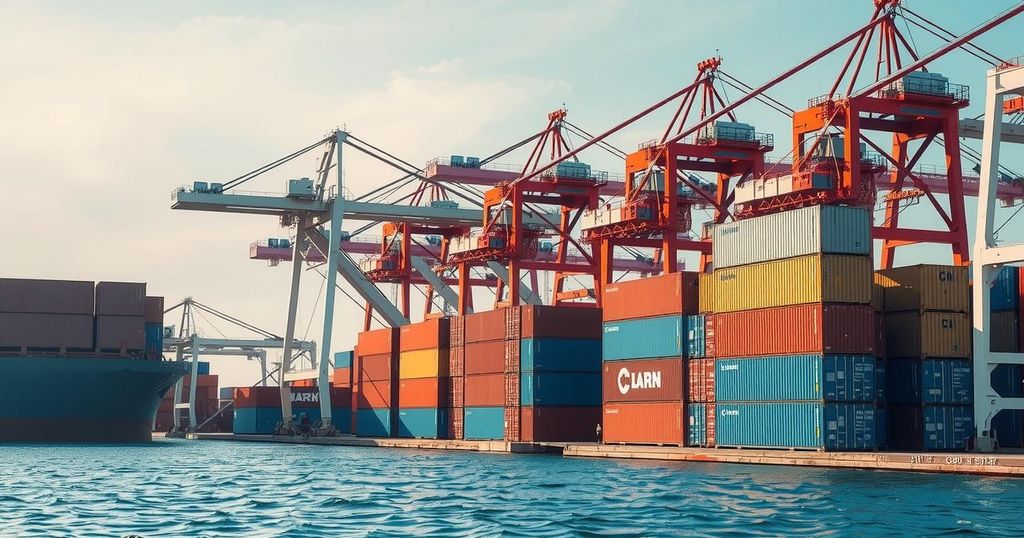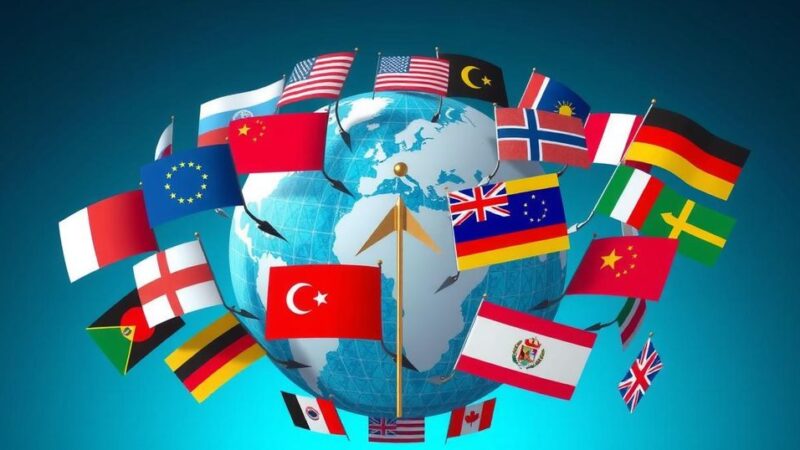President Trump announced new tariffs on goods from Mexico, Canada, and China, citing the need to protect American interests against illegal immigration and drugs. The tariffs include a 25% duty on imports from Canada and Mexico and a 10% tariff on Chinese goods, which are expected to raise consumer prices and potentially inflame inflation. Follow-up responses from Canada and Mexico indicate a rising trade tension, with retaliatory measures already in motion.
In a recent policy shift, President Donald Trump announced the imposition of tariffs on goods imported from Mexico, Canada, and China. This decision was articulated as a necessary measure to safeguard American interests against illegal immigration and narcotics, particularly targeting fentanyl. Trump indicated that tariffs could extend to European Union products, while suggesting that an agreement might be reached with the United Kingdom to avoid such measures. Furthermore, he proposed a potential blanket tariff of 10% on all imports into the United States.
Tariffs are essentially taxes levied on imported goods, which can vary in structure; the most common type is a percentage of the value of the product. Under Trump’s tariffs, a notable 25% duty will be applied to goods coming from Canada and Mexico, while imports from China will be subject to a 10% tariff. Economists warn that these tariffs are likely to increase prices for consumers as the costs incurred by importers are typically passed on to shoppers.
The rationale behind these tariffs includes fostering U.S. manufacturing and enhancing job protection, according to Trump. He has cited the combat of fentanyl trafficking as another crucial motive, implying that the chemicals for this drug largely stem from China, with Mexican gangs facilitating its entry into the United States. Despite these assertions, Canadian officials, including Prime Minister Justin Trudeau, refute claims about significant fentanyl imports from Canada, stressing that less than 1% of the drug originates there.
In retaliatory fashion, Trudeau announced corresponding tariffs on approximately $156 billion worth of U.S. goods following the U.S. tariff announcement. Mexican President Claudia Sheinbaum has commissioned the Economy Secretary to devise appropriate defensive measures against U.S. tariffs. Meanwhile, a spokesperson from China’s foreign ministry criticized the tariffs, asserting that “trade and tariff wars have no winners.”
The products likely affected by these tariffs encompass a wide range of categories, including essential goods such as fruit, vegetables, steel, and various vehicle components. The vast interconnected nature of manufacturing means that the automobile sector will face significant impacts, with projections estimating a potential increase of $3,000 in the average U.S. car price due to these tariffs.
There is growing concern over potential tariffs on European Union and United Kingdom goods, with Trump stating both parties are “acting out of line.” While he suggested that a resolution with the UK may be feasible, EU officials reaffirmed their commitment to a robust response if tariffs were enacted. Notably, the U.S. maintains a substantial trade deficit with the EU, which fosters the potential for conflict.
The economic repercussions of these tariffs include the likelihood of increased prices for consumers, as evidenced by prior analyses of the impacts of similar tariffs during Trump’s first term. Should these new tariffs take effect, analysts predict inflation rates in the U.S. may rise significantly, possibly from 2.9% to as high as 4%, thereby reverting to levels observed in mid-2023.
The article discusses recent tariffs imposed by President Donald Trump as a response to issues related to illegal immigration and drug trafficking, notably fentanyl. The piece provides insight into the mechanics of tariffs and their economic implications for both American consumers and the targeted foreign nations, specifically Canada, Mexico, and China. Additionally, the potential for tariffs on EU and UK goods is also explored, highlighting the contentious trade relations that could further escalate and impact global markets.
In summary, President Trump’s implementation of tariffs on goods from Mexico, Canada, and China seeks to protect American manufacturing and combat illegal drug trafficking. The potential for increased costs to consumers raises concerns about inflation, particularly if similar measures are expanded to the European Union and the United Kingdom. The landscape of international trade relations remains precarious as responses from affected nations develop.
Original Source: www.bbc.com






